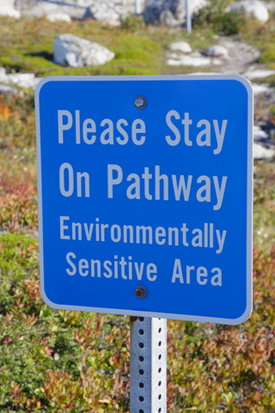
For many people of faith this is both embarrassing and an offence against modesty. This concept covers language and attitudes as well as dress. Many others of faith would agree that it is “an incorrect assumption that speaking at the level of the child is synonymous with using the language of the street”. Perhaps the perceived need for this would be decreased if teaching about body parts were done effectively and early.
Being Sensitive in Group Work
SRE group work can also be a place of pressure. Firstly, this may be on those who hold a minority position. If asked to state their views and values they may experience ridicule or fear it. Secondly, the way the adult speaks may unwittingly place pressure on young people’s values. Compare these two statements: "You’ll need to know where the Sexual Health Clinic is." To "If you or a friend ever need it, the Sexual Health Clinic is …”
Similarly, some teaching about the age of consent at 16 can reinforce an attitude that 16 is the age at which young people are expected to be sexually active. Rather than an age set to protect young people from predatory sex. This can leave some young people with an inadvertent pressure to be having sex at 16. It’s important for teens to know that they can get free and confidential sexual health advice under 16. However, it is also important that this message is delivered in a way that doesn’t encourage underage sex.
Young people can feel ‘shown up’ in different ways in SRE. For example when asked to explain and defend points of view that they have not had to think through previously. They may feel that confidentiality about their behaviour has been breached. They need to feel safe – so, for example not sharing personal stories in groups. In looking at family life they need to feel that their family situation is not excluded by the materials. For example: single parents, extended families, foster parent(s), lesbian and gay parents etcetera).
Being Sensitive with the Unknown
Young people can feel they have been put on the spot when there is something in their life that the questioner doesn’t know about. This might include asking a young person who has had an abortion to express their view on abortion.
[1] Hannah Frankel Let’s talk about sex TES Magazine 3 December, 2010 found at https://www.tes.com/magazine/back-issues

For many people of faith this is both embarrassing and an offence against modesty. This concept covers language and attitudes as well as dress. Many others of faith would agree that it is “an incorrect assumption that speaking at the level of the child is synonymous with using the language of the street”. Perhaps the perceived need for this would be decreased if teaching about body parts were done effectively and early.
Being Sensitive in Group Work
SRE group work can also be a place of pressure. Firstly, this may be on those who hold a minority position. If asked to state their views and values they may experience ridicule or fear it. Secondly, the way the adult speaks may unwittingly place pressure on young people’s values. Compare these two statements: "You’ll need to know where the Sexual Health Clinic is." To "If you or a friend ever need it, the Sexual Health Clinic is …”
Similarly, some teaching about the age of consent at 16 can reinforce an attitude that 16 is the age at which young people are expected to be sexually active. Rather than an age set to protect young people from predatory sex. This can leave some young people with an inadvertent pressure to be having sex at 16. It’s important for teens to know that they can get free and confidential sexual health advice under 16. However, it is also important that this message is delivered in a way that doesn’t encourage underage sex.
Young people can feel ‘shown up’ in different ways in SRE. For example when asked to explain and defend points of view that they have not had to think through previously. They may feel that confidentiality about their behaviour has been breached. They need to feel safe – so, for example not sharing personal stories in groups. In looking at family life they need to feel that their family situation is not excluded by the materials. For example: single parents, extended families, foster parent(s), lesbian and gay parents etcetera).

Being Sensitive with the Unknown
Young people can feel they have been put on the spot when there is something in their life that the questioner doesn’t know about. This might include asking a young person who has had an abortion to express their view on abortion.
[1] Hannah Frankel Let’s talk about sex TES Magazine 3 December, 2010 found at https://www.tes.com/magazine/back-issues
